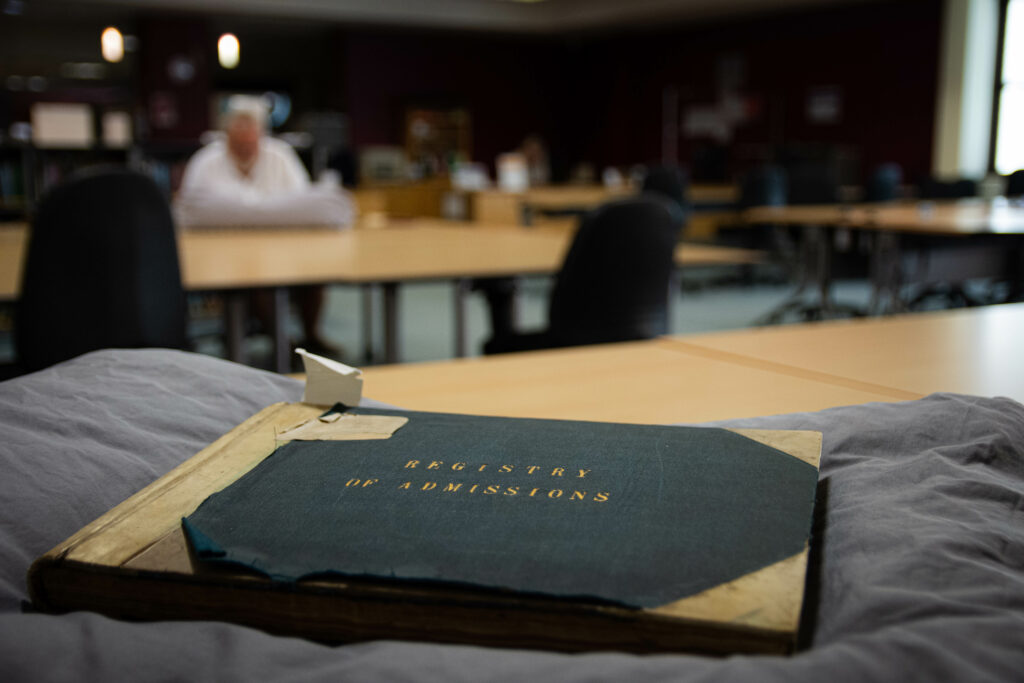Principles of Change Minds

Change Minds is intended to have heritage, social and positive mental health outcomes, and as such is an amalgam of its partners’ key missions.
Archive services are heritage organisations with a social purpose; they collect and preserve archives about the history of its catchment area, parent organisation or subject matter, and make these archives accessible to the public for their interest and enjoyment.
Mental health support services are health organisations with a social purpose; they work alongside people with mental health issues on their journey towards improved health and wellbeing, greater confidence and living more fulfilling and independent lives.
Change Minds is a bridge programme linking these outcomes. It supports people with mental health issues to engage with heritage to reduce social exclusion and improve their mental health.
Duty of Care
Change Minds is a project that aims to improve the health and wellbeing of people who have mental health problems. It is not a mental health service. Although Change Minds project and archive service staff have a duty of care to participants, to behave sensibly and kindly, and to record and share any concerns, they are not expected to provide wider support. Contact with participants is related to the project; issues with housing, money, safeguarding or physical and mental health are referred to their Mental Health Support Organisation.
We maintain these boundaries in order that participants can enjoy Change Minds without feeling that they might be treated as patients or clients. It is also an important safety measure, since mental health risk is assessed and managed by the Mental Health Support Organisation, who can help a participant who becomes unwell.
Groupwork and Person-Centred Recovery
Change Minds sessions are framed by ideas and practice based on groupwork and person-centred recovery. Groupwork is an effective and humane way for people to form a mutually supportive connection that helps sustain them during the project and, to some extent, after it ends. Person-centred recovery respects the individual’s unique experiences and strengths, so that they can make treatment and support choices based on what recovery means to them. This attitude is integral both to working with participants and to thinking about our subjects, people who were patients in a County Asylum.
Criteria for Success
Change Minds’ criteria for success are informed by and embodied in each project iteration:
- Participants have problems with their mental health. Change Minds participants have complex mental health needs.
- Participants are included in management. Participants have the opportunity to be members of the Change Minds iteration’s Project Board.
- Partnership with heritage and health organisations. The partnership between the archive service and the mental health support organisation is confirmed in a signed partnership agreement which states that the partners will deliver the project according to their application to a funding body. All partners are members of the Project Board.
- Groupwork is the core. All workshops are group-based and informed by relevant theory and practice. They are established on the view that lasting change can occur within a carefully conducted group.
- Safe framework and practice. The partners’ policies and practices meet the required standards, and due diligence has been applied when forming the partnership. Staff and volunteers must work to relevant professional standards and, if it is required for their role, must have external validation of their suitability to work with vulnerable people by showing evidence that they have Enhanced Disclosure and Barring Service Certificate (DBS).
- Proper measurement of impact and outcomes. The project has ethical approval from the University of Dundee. The evaluation team has drawn up an evaluation methodology that measures participants’ wellbeing before the project, immediately after it finishes, and one year after the project end. IT also records demographic information. All evaluation data will be securely stored and managed by the Change Minds Hub team in accordance with UK data protection legislation.
- Sustained and regular involvement. The project comprises twelve workshops, scheduled regularly over a predetermined period of time. There will also be opportunities to keep in touch between workshops and after the project has finished.
- Access to cultural assets and expertise. The participants will have use of archive service facilities, enjoy a behind the scenes tour, view original records, and benefit from the expertise of archive staff. Site visits include private meetings and tours with heritage experts, and close encounters with selected objects and documents.
- Encouragement to be creative. The participants will build upon the research they undertake in phase 1 of the project and can develop creative responses to what they have learnt.
- Learning for staff and volunteers. Staff and volunteers will have the opportunity to learn about Mental Health First Aid and to build upon their archive skills if required, including training in basic research skills and document handling. Staff and volunteers can also participate in creative sessions led by a creative facilitator.
- Progression for participants. Participants will be able to take part in one-to-one interviews with project staff about what people might like to move on to, including volunteering and participation opportunities offered by all partners.
